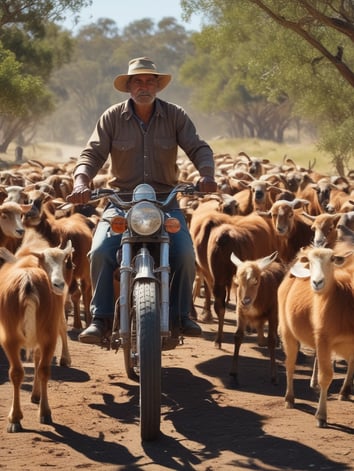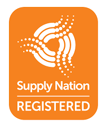

Strong Country, Strong Culture, Strong Workforce
Indigenous employment in rangeland and remote civil projects strengthens communities, preserves cultural knowledge, and promotes economic independence. It builds local skills, fosters land stewardship, and supports sustainable development. By engaging Indigenous workers, projects gain cultural insight, social value, and long-term impact, creating meaningful partnerships grounded in respect and shared success
Rangeland Goat Mustering Project


Indigenous-led rangeland goat mustering represents a powerful blend of ethical land management, cultural integrity, and sustainable enterprise. Rooted in generations of Traditional Knowledge, it respects Country while addressing overgrazing and invasive species through low-impact, humane practices.
This approach not only restores ecological balance but also reinforces Indigenous authority over land use and resource stewardship.
Ethical goat mustering promotes community employment, skills transfer, and economic participation, particularly for remote areas often excluded from mainstream industries.
Profits support local infrastructure, wellbeing programs, and intergenerational knowledge-sharing, ensuring long-term community benefit.
Sustainability is embedded—environmentally, through conservation outcomes; socially, through cultural continuity and employment; and economically, through value-adding across the goat supply chain.
This model demonstrates how Indigenous enterprise can lead national discussions on regenerative agriculture, ethical livestock management, and self-determined development. It’s a system that honours land, supports people, and builds a future aligned with both modern opportunity and ancient care for Country
Innovation
Empowering Indigenous communities through innovation & collaboration
1300 602 113
© 2024. All rights reserved.
Connect
Nullar Stuart Enterprises Pty Ltd
ABN 93 169 615 436
PO Box 66, Gladstone, SA 5473


